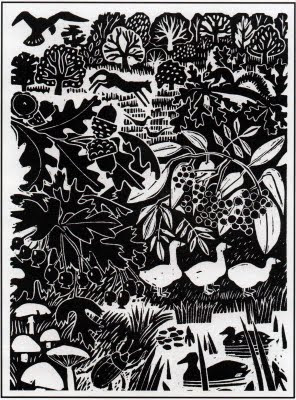 I wandered down a green wood side
I wandered down a green wood sideOn Sunday noon in spring
Where little birds their dwellings hide
And Thrushes sweetly sing
The moss so green round Hazel roots
The Primrose by its side
That in its brimstone livery shoots
In bunches far and wide
Oh there I met a pretty maid
The fairest of her kind
She stood beneath the Hazels shade
Where lightly blew the wind
I gave her cheek a hearty smack
As leaning on her neck
Her soft hair trailed adown her back
Without a mark or Speck
Within the dyke the bullrush grew
Although the place was dry
And Thrushes nest wi’ Eggs o' blue
Did on the hedge ribs lye
The Woodbines in green leaves look'd wan
The Blue bell stooped i' pride
And there I claspt my bonny Ann
Along the greenwood side
Oh bonny Ann Oh bonny Ann
What makes you look so fair
Is it the love for some fond man
Or is't for none you care
My love to thee my bonny Ann
Where primrose blooms wi’ pride
I’ll talk and please thee all I can
Down by the greenwood side
(for a lady...)











































.jpg)







